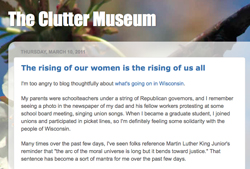This screenshot snippet, taken from a job listings page at a community college, captures pretty succinctly much of what’s wrong with higher education priorities today.
The job description for the “faculty internship” explicitly states the position is intended to groom people for (those crazy high-paying) adjunct jobs.
I wonder if the position is akin to Boise State’s Foundational Studies program, which pays grad students and professional staff a whopping $1,000 to teach class sections all semester.
Compare that teaching salary to these figures (already a year old). I had no idea the Boise State football coach gets a quarter million dollars annually just for letting the university license his image. Clearly, I need to renegotiate my contract.















